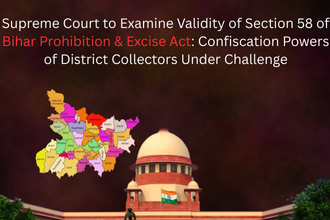In a landmark order dated April 17, 2025, the Supreme Court of India provided interim relief to untainted Assistant Teachers of Classes 9 to 12 in West Bengal, whose appointments were annulled in the wake of the infamous 2016 WB SSC scam. The apex court permitted these teachers to continue in service until the completion of a fresh recruitment process, which must conclude by December 31, 2025.
This direction comes as part of the ongoing proceedings in the case of State of West Bengal vs. Baishakhi Bhattacharyya (Chatterjee) [SLP(C) No. 009586/2024], in which the top court upheld the cancellation of nearly 25,000 tainted appointments made through the West Bengal School Service Commission (WBSSC) in 2016.
Background: WBSSC Recruitment Scam 2016
The WBSSC scam surfaced as one of the most significant recruitment-related frauds in recent Indian history. Investigations and judicial scrutiny revealed gross irregularities, including manipulation of Optical Mark Recognition (OMR) sheets, favoritism, and large-scale corruption in the appointment of teaching and non-teaching staff across Group C, Group D, and teaching posts in Classes 9–12.
In April 2024, the Calcutta High Court declared the entire selection process “vitiated by fraud” and “tainted beyond repair”, directing the cancellation of all related appointments. The State of West Bengal challenged this order before the Supreme Court, which upheld the High Court’s findings on April 3, 2025, emphasizing the need to uphold institutional integrity in public appointments.
Supreme Court’s Latest Order: Key Highlights
Delivering a judgment on a Miscellaneous Application filed by the State Government, a Supreme Court Bench led by Chief Justice Sanjiv Khanna and Justice Sanjay Kumar made the following directions:
- Continuation of Unblemished Teachers (Classes 9–12):
- Assistant Teachers found untainted by the inquiry may continue in their current posts.
- This continuation is temporary and subject to the completion of the fresh recruitment process by December 31, 2025.
- No Relief for Group C & D Employees:
- The Court denied similar relief to Group C and Group D staff, citing a substantial presence of tainted candidates in these categories.
- Fresh Recruitment Timeline:
- WBSSC and the State Government must advertise fresh vacancies for Classes 9–12 by May 31, 2025.
- The entire recruitment process, including examinations and selection, must be completed by December 31, 2025.
- Affidavit Requirement:
- The State is required to file an affidavit by May 31, 2025, producing the recruitment advertisement as proof of compliance.
- Failure to comply will result in automatic vacation of the current order, the Court warned.
- Students’ Welfare as a Deciding Factor:
- A key reason behind the Court’s decision to permit untainted teachers to stay was to prevent disruption in students’ education.
Legal Representation
The matter witnessed the participation of several eminent lawyers:
- Senior Advocate Kapil Sibal and Senior Advocate Rakesh Dwivedi appeared on behalf of the State Government.
- Senior Advocate Jaideep Gupta represented the West Bengal School Service Commission (WBSSC).
Implications of the Order
This ruling is expected to have far-reaching implications on the education system and public employment jurisprudence in India:
1. Relief for Genuine Appointees
Many teachers, though caught in the fallout of the scam, were innocent and had cleared the recruitment process on merit. The Court’s decision provides temporary job security and financial relief to this category of appointees, pending a fresh, corruption-free recruitment.
2. Emphasis on Timely Recruitment
The Court has imposed a strict deadline to ensure that the recruitment process is neither delayed nor diluted. This reflects judicial activism in ensuring public accountability and administrative efficiency.
3. Warning to Defaulting Authorities
By linking the continuation of untainted teachers with timely advertisement and completion of recruitment, the Supreme Court has sent a strong message to State authorities and recruitment bodies to act with transparency and urgency.
4. Clear Message on Public Employment Integrity
The ruling continues the Supreme Court’s trend of zero tolerance towards corruption in public appointments, reinforcing the need for merit-based recruitment in the education sector.
Historical Context: Apex Court Upholding HC Judgment
In its April 3, 2025 ruling, the Supreme Court affirmed the Calcutta High Court’s findings that the entire selection process was compromised due to manipulation and lack of transparency. The judgment effectively rendered thousands of appointments void, acknowledging that the systemic fraud had eroded public trust in the recruitment mechanism.
By refusing blanket relief and distinguishing between tainted and untainted appointees, the Court upheld the principle that fraud vitiates even the most seemingly valid acts.
What Lies Ahead?
While untainted teachers of Classes 9–12 can breathe a sigh of relief for now, their continued service is contingent upon the timely completion of a fresh recruitment. Given the scale of irregularities in the previous process, all eyes are now on the State Government and WBSSC to execute a transparent and credible recruitment exercise.
Stakeholders across the education sector, including students, parents, and teaching aspirants, will closely monitor the next steps, particularly the advertisement and the structure of the new examination process.
Conclusion
The Supreme Court’s measured approach in the WB SSC Scam case strikes a balance between institutional accountability and individual justice. By allowing only the untainted Assistant Teachers to remain in service temporarily, the Court has protected students’ interests while safeguarding the sanctity of public employment. At the same time, its insistence on strict deadlines and conditional relief reflects a commitment to swift systemic reform.
As West Bengal prepares for a comprehensive overhaul of its school recruitment system, the Court’s judgment will serve as a guiding precedent in restoring credibility, fairness, and transparency to one of the State’s most critical public services.


